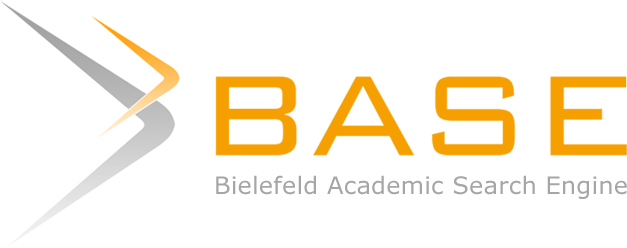Unravelling the success factors of Latin-American Fair Trade projects
DOI:
https://doi.org/10.33324/dicere.v1i2.804Keywords:
social and economic rights, international trade, living conditions, North-South relationsAbstract
This investigation seeks to identify the success factors of Latin-American Fair Trade projects through a systematic literature review with the Kitchenham and Charters method. Through a data extraction and its evaluation from selected literature, to the online libraries Scopus, Web of Science, Redalyc, Springer Link and Science Direct in the range from 2018 to 2023 it determines that the success factors are government support, production increase, capacity building and skills promotion, and international market outreach. It also identifies that these factors depend on complementary factors related with the capacity of producers and workers to implement these Fair Trade certifications and practices in their production, mainly in agriculture. These factors benefit community-based projects from vulnerable groups in rural areas while correlating to exports and Fair-Trade principles. Meaning, certification is not compulsory, so its principles can be implemented in a variety projects, generating a series of benefits and limitations for their development.
Downloads
References
Albis, N., & Álvarez, I. (2017). A comparative analysis of the innovation performance between foreign subsidiaries and owned domestic firms in Colombian manufacturing sector. Journal of Globalization, Competitiveness & Governability, 11(2), 20–41. https://doi.org/10.3232/GCG.2017.V11.N2.01 DOI: https://doi.org/10.3232/GCG.2017.V11.N2.01
Altieri, M., & Nicholls, C. (2008). Scaling up agroecological approaches for food sovereignty in Latin America. Development, 51(4), 472–480. https://doi.org/10.1057/dev.2008.68 DOI: https://doi.org/10.1057/dev.2008.68
Beuchelt, T., & Zeller, M. (2011). Profits and poverty: Certification’s troubled link for Nicaragua’s organic and fairtrade coffee producers. Ecological Economics, 70, 1316–1324. https://doi.org/10.1016/j.ecolecon.2011.01.005 DOI: https://doi.org/10.1016/j.ecolecon.2011.01.005
Botello, H., & Guerrero, I. (2014). Condiciones y determinantes de la internacionalización de las empresas industriales colombianas: una aproximación cuantitativa en el ámbito de la firma. Revista Apuntes del CENES, 33(57), 257–286. DOI: https://doi.org/10.19053/22565779.2910
Bruce, A. (2016). The Legacy of Agrarian Reform in Latin America: Foundations of the Fair Trade Cooperative System. Geography Compass, 10(12), 485–498. https://doi.org/10.1111/gec3.12298 DOI: https://doi.org/10.1111/gec3.12298
Bulatov, A. (2023). World Economy and International Business. DOI: https://doi.org/10.1007/978-3-031-20328-2
Carbaugh, R. (2019). International economics (7th ed.).
Coslovsky, S. (2014). Economic development without pre-Requisites: how Bolivian producers met strict food safety standards and dominated the global brazil-nut market. World Development, 54, 32–45. https://doi.org/10.1016/j.worlddev.2013.07.012 DOI: https://doi.org/10.1016/j.worlddev.2013.07.012
Doherty, B., Haugh, E., Sahan, E., Wills, T., & Croft, S. (2020). Creando la Nueva Economía. 1–48. https://wfto.com/sites/default/files/Business_Models_Report%20-%20Spanish_z.pdf
Donovan, J., & Poole, N. (2014). Changing asset endowments and smallholder participation in higher value markets: Evidence from certified coffee producers in Nicaragua. Food Policy, 44, 1–13. https://doi.org/10.1016/j.foodpol.2013.09.010 DOI: https://doi.org/10.1016/j.foodpol.2013.09.010
Enelow, N. (2015). Coffee, cooperatives, and choba-choba: the role of non-market labor networks in building equitable supply chains. Eutopía - Revista de Desarrollo Económico Territorial, 7, 39–55. https://doi.org/10.17141/eutopia.7.2015.1658 DOI: https://doi.org/10.17141/eutopia.7.2015.1658
Fairtrade Foundation. (2023). Fairtrade Premium. https://www.fairtrade.org.uk/what-is-fairtrade/what-fairtrade-does/fairtrade-premium/
Fairtrade Ibérica. (2022). El impacto de Fairtrade. https://www.fairtrade.es/impacto/
Fairtrade International. (2023). Fairtrade Minimum Price and Faitrade Premium Table (pp. 1–65). http://www.fairtrade.net/our-standards.html.
Fontalvo-Hererra, T., Morelos-Gómez, J., & Olivos-Aarón, S. (2019). Efficiency of midsize enterprises in the free-trade-zone in Barranquilla – Colombia. Entramado, 15(2), 12–26. https://doi.org/10.18041/1900-3803/entramado.2.5476 DOI: https://doi.org/10.18041/1900-3803/entramado.2.5476
Fridell, M., Hudson, I., & Hudson, M. (2021). The tensions, contradictions and challenges in the search for Fair Trade. The Fair Trade Handbook.
Gerber, J. (2023). International economics (8th ed.).
Gudynas, E. (2008). The new bonfire of vanities: Soybean cultivation and globalization in South America. Development, 51(4), 512–518. https://doi.org/10.1057/dev.2008.55 DOI: https://doi.org/10.1057/dev.2008.55
Hahn, H. (2013). The conundrum of verification and validation of social science-based models. Procedia Computer Science, 16, 878–887. https://doi.org/10.1016/J.PROCS.2013.01.092 DOI: https://doi.org/10.1016/j.procs.2013.01.092
Hoyos-Villa, O. (2019). Factores que impulsan la internacionalización en las pymes industriales del Eje Cafetero colombiano: estudio de caso. Entramado, 15(2), 78–103. https://doi.org/10.18041/1900-3803/entramado.2.5597 DOI: https://doi.org/10.18041/1900-3803/entramado.2.5597
Hudson, I., & Hudson, M. (2015). Una crítica vacilante: cómo el potencial del Comercio Justo disminuye con “éxito.” Eutopía - Revista de Desarrollo Económico Territorial, 7, 131. https://doi.org/10.17141/eutopia.7.2015.1793 DOI: https://doi.org/10.17141/eutopia.7.2015.1793
Jiménez, K., Medina, J., & Cheín, N. (2013). Economía: Teoría y práctica Universidad Autónoma Metropolitana Unidad. Economía: Teoría y Práctica, 39, 89–117. http://www.redalyc.org/articulo.oa?id=281130720005
Kilian, B., Jones, C., Pratt, L., & Villalobos, A. (2006). Is sustainable agriculture a viable strategy to improve farm income in Central America? A case study on coffee. Journal of Business Research, 59(3), 322–330. https://doi.org/10.1016/j.jbusres.2005.09.015 DOI: https://doi.org/10.1016/j.jbusres.2005.09.015
Kitchenham, B., & Charters, S. (2007). Guidelines for performing Systematic Literature Reviews in Software Engineering. EBSE Technical Report, 1–57. https://www.elsevier.com/__data/promis_misc/525444systematicreviewsguide.pdf
Krugman, P., Obstfeld, M., & Melitz, M. (2023). International economics theory & policy (12th ed.).
Lemay, J. (2007). Cartografía de un proyecto de comercio justo en el Sur: la Central Interregional de Artesanos de Perú. Cayapa. Revista Venezolana de Economía Social, 7(14), 37–53.
Loconto, A., Silva-Castaneda, L., Arnold, N., Jimenez, A., & Participatory, A. (2019). Participatory Analysis of the Use and Impact of the Fairtrade Premium. https://hal.science/hal-02048855
López-Rodríguez, C., Moscoso-Aldana, R., Ávila-Ávila, C., & Ibarra-Nieves, J. (2021). Internacionalización de empresas comercializadoras de servicios de alojamiento y comida en Colombia: determinantes para el éxito comercial. Revista Economía y Política, 34, 57–72. https://www.redalyc.org/articulo.oa?id=571167877006 DOI: https://doi.org/10.25097/rep.n34.2021.04
Lyon, S. (2007). Fair trade coffee and human rights in Guatemala. Journal of Consumer Policy, 30, 241–261. https://doi.org/10.1007/s10603-007-9040-7 DOI: https://doi.org/10.1007/s10603-007-9040-7
Lyon, S., Aranda, J., & Mutersbaugh, T. (2010). Gender equity in fairtrade-organic coffee producer organizations: Cases from Mesoamerica. Geoforum, 41(1), 93–103. https://doi.org/10.1016/j.geoforum.2009.04.006 DOI: https://doi.org/10.1016/j.geoforum.2009.04.006
Mayo, E., & Sahan, E. (2018). Can we have a Fair Trade economy? Coop News. https://www.thenews.coop/128538/topic/fairtrade/can-fairtrade-economy/
Méndez-Medina, C., Schmook, B., & McCandless, S. (2015). The Punta Allen cooperative as an emblematic example of a sustainable small-scale fishery in the Mexican Caribbean. Maritime Studies, 14(12), 1–19. https://doi.org/10.1186/s40152-015-0026-9 DOI: https://doi.org/10.1186/s40152-015-0026-9
Morais-da-Silva, R., Segatto, A., & Bezerra-de-Sousa, I. (2020). Connecting two sides: a qualitative study on social innovation ventures and poor communities in an emerging economy. Voluntas, 31(5), 966–980. https://doi.org/10.1007/s11266-019-00156-x DOI: https://doi.org/10.1007/s11266-019-00156-x
Organización de las Naciones Unidas para la Agricultura y la Alimentación. (2003). Guía Práctica sobre por qué, cómo y con Quién Certificar Productos Agrícolas para la Exportación. https://www.fao.org/3/ad818s/ad818s03.htm
Peñaloza, M., Ramírez, D., & Barrios, M. (2016). Factores de permanencia y éxito competitivo en la PyMI del municipio Libertador de Mérida, Venezuela. Economía, 41(41), 151–171.
Penido, E., Cyrino, Á., de Miranda, M., & Leme, M. (2010). Does internationalization pay off? A study of the perceived benefits and financial performance of the international operations of Brazilian companies. Journal of Globalization, Competitiveness & Governability, 4(3), 38–61. https://doi.org/10.3232/gcg.2010.v4.n3.03 DOI: https://doi.org/10.3232/GCG.2010.V4.N3.03
Philpott, S., Bichier, P., Rice, R., & Greenberg, R. (2007). Field-testing ecological and economic benefits of coffee certification programs. Conservation Biology, 21(4), 975–985. https://doi.org/10.1111/j.1523-1739.2007.00728.x DOI: https://doi.org/10.1111/j.1523-1739.2007.00728.x
Ramírez, N., Monroy, S., & Guevara, D. (2019). Agroecology and integral microfinance: recommendations for the Colombian post-conflict avoiding the financialization of rural financing. Cuadernos de Economía, 38(78), 729–751. https://doi.org/10.15446/cuad.econ.v38n78.73236 DOI: https://doi.org/10.15446/cuad.econ.v38n78.73236
Raynolds, L., & Long, M. (2007). Fair Trade: The Challenges of Transforming Globalization (pp. 15–32). DOI: https://doi.org/10.4324/9780203933534
Redfern, A., & Snedker, P. (2002). Creating Market Opportunities for Small Enterprises: Experiences of the Fair Trade Movement. In Organización Internacional del Trabajo (30). https://www.ilo.org/wcmsp5/groups/public/---ed_emp/---emp_ent/---ifp_seed/documents/publication/wcms_117707.pdf
Ruffier, J. (2005). La frontera como ventaja competitiva: la producción de naranjas en ambas márgenes del río Uruguay. Revista Galega de Economía, 14(2), 1–20.
Schuh, A., & Díez-Vial, I. (2009). La diversificación en las empresas de medios: El caso de Globo en Brasil. Journal of Globalization, Competitiveness & Governability, 3(3), 90–105. https://doi.org/10.3232/GCG.2009 DOI: https://doi.org/10.3232/GCG.2009.V3.N3.04
Stattman, S., & Mol, A. (2014). Social sustainability of Brazilian biodiesel: The role of agricultural cooperatives. Geoforum, 54, 282–294. https://doi.org/10.1016/j.geoforum.2014.04.001 DOI: https://doi.org/10.1016/j.geoforum.2014.04.001
Tadros, C., & Malo, M. (2003). Comercio equitativo del café: Equal Exchange, un modelo cooperativo de solidaridad. Cayapa. Revista Venezolana de Economía Social, 3(6), 7–22.
Tello-Rozas, S. (2016). Inclusive innovations through social and solidarity economy initiatives: a process analysis of a Peruvian case study. Voluntas, 27(1), 61–85. https://doi.org/10.1007/s11266-015-9606-y DOI: https://doi.org/10.1007/s11266-015-9606-y
Vagneron, I., Faure, G., & Loeillet, D. (2009). Is there a pilot in the chain? Identifying the key drivers of change in the fresh pineapple sector. Food Policy, 34(5), 437–446. https://doi.org/10.1016/j.foodpol.2009.05.001 DOI: https://doi.org/10.1016/j.foodpol.2009.05.001
Williams, J. (2021). Fair Trade, firsthand: connecting Northern consumers with Southern producers. In G. Fridell, Z. Gross, & S. McHugh (Eds.), The Fair Trade Handbook.
World Fair Trade Organization. (2017). Resolution Document 2: 10 Principles of Fair Trade.
World Fair Trade Organization. (n.d.). About World Fair Trade Organization. World Fair Trade Organization. Retrieved October 5, 2022, from https://wfto.com/who-we-are#our-grassroots-history
World Fair Trade Organization. (2018). International Fair Trade Charter. https://www.fair-trade.website/the-charter-1
World Fair Trade Organization. (2020). History of Fair Trade. https://wfto.com/about-us/history-wfto/history-fair-trade
Zamora, J., & Bravo, M. (2005). Wine, product differentiation and tourism: exploring the case of Chile and the Maule region. Universum. Revista de Humanidades y Ciencias Sociales, 2(20), 298–315 DOI: https://doi.org/10.4067/S0718-23762005000200016
Downloads
Published
How to Cite
Issue
Section
License

This work is licensed under a Creative Commons Attribution-NonCommercial-ShareAlike 4.0 International License.
This article is published under the Copyright and Licensing terms of this journal.












